In recent weeks, the Islamic State Khurasan Province (ISKP) has increasingly warned about spies, infiltrators, and bad actors looking to compromise their Af-Pak networks. These anxieties are perceptible in ISKP discussion groups, al-Azaim Media Foundation’s official alerts, and the publication of posters identifying suspected traitors or Telegram accounts to avoid interacting with.
These warnings became more noticeable throughout ISKP spaces in June when the group’s propaganda operatives informed supporters about social media users pretending to be editors and staff members of Voice of Khurasan magazine.
The looming spy threat seems to have ultimately culminated in a Taliban-linked mole penetrating an ISKP cell in Afghanistan, resulting, according to some accounts, in the killing of rising propagandist, recruiter, and fundraiser Yusuf Tojiki.
Around the time when reports of Tojiki’s death emerged in early July, ISKP accounts began spreading images and statements identifying “Valid Umarov”, a Tajik national, and others believed to be involved. ISKP was looking to limit the contagion and warn any supporters who may have had contact and shared personal information with Umarov.
ISKP even released a four-page document about Umarov and the details of his treachery.
This event spurred ISKP networks to exercise increased caution and tighten up their communications. As a result, al-Azaim operatives have become markedly more proactive and persistent in sounding the alarm about emerging threats.
On July 15, ISKP-linked channels released a picture of a man named Bilal Peshawari, warning supporters against any communication with him. The statement – published both in Pashto and Farsi – said Bilal Peshawari was trying to contact ISKP militants in order to get them captured and that he was part of the Taliban. The picture was then re-uploaded by al-Azaim Foundation on August 5, again telling its supporters to look out for Bilal Peshawari.
That same day, al-Azaim Foundation shared a new warning to its members, specifically those from Iran. The statement argued that intelligence agencies are after ISKP supporters online and are trying to deceive them to get them captured.
Curiously, on July 14, al-Azaim Foundation circulated another message disowning well-known pro-ISKP channel al-Mursalat after the latter published a statement implicitly endorsing the killing of Salafi scholar Shaikh Sardar Wali. Al-Mursalat is known for publishing writings from many different ISKP supporters. Thus, while al-Azaim Foundation deemed it necessary to publish a corrective statement about al-Mursalat, it is likely that this was to avoid controversy over the killing of a renowned Salafi religious figure. ISKP aims to centralize messaging and keep its narratives consistent. However, this could additionally be a further sign that the group is shifting its policy towards only endorsing official channels or simply being more careful about its associations with unofficial pro-ISKP groups that al-Azaim has no control over.
ISKP is feeling both external pressures from Taliban counter-terrorism raids and malicious actors’ attempts to disrupt the group from within and relay the location of its fighters to hostile entities. To protect against infiltration by the Taliban or foreign governments, it is likely that ISKP will implement further measures to harden its defenses against espionage.
It should be noted, however, that despite the alleged setbacks to its online networks and fighters on the battlefield (killing of Yusuf Tojiki and Taliban raids), the group remains highly capable of producing propaganda and conducting significant attacks. On August 6 alone, the group published a thorough new book and carried out a devastating attack against the Shia community in Kabul.



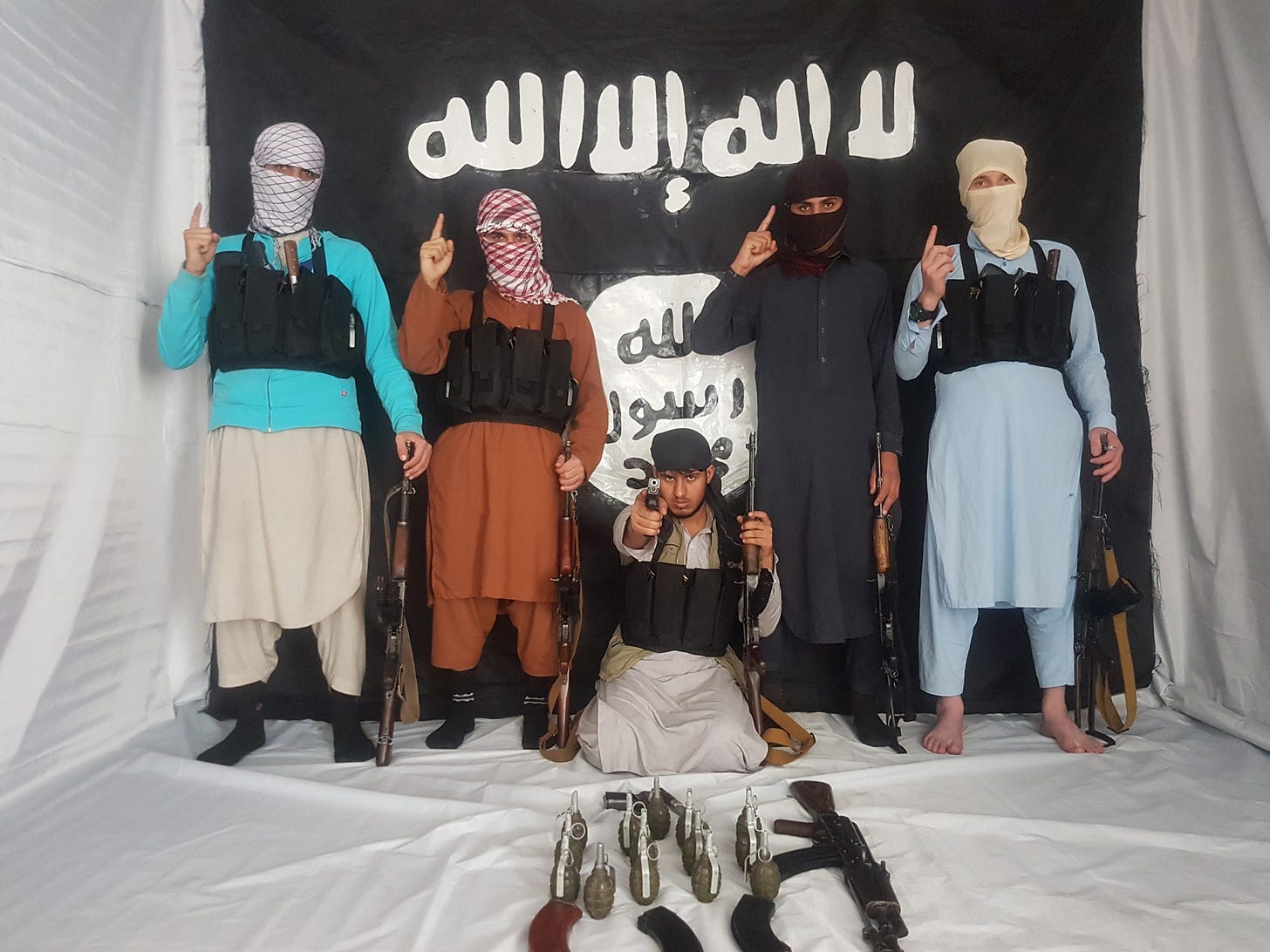

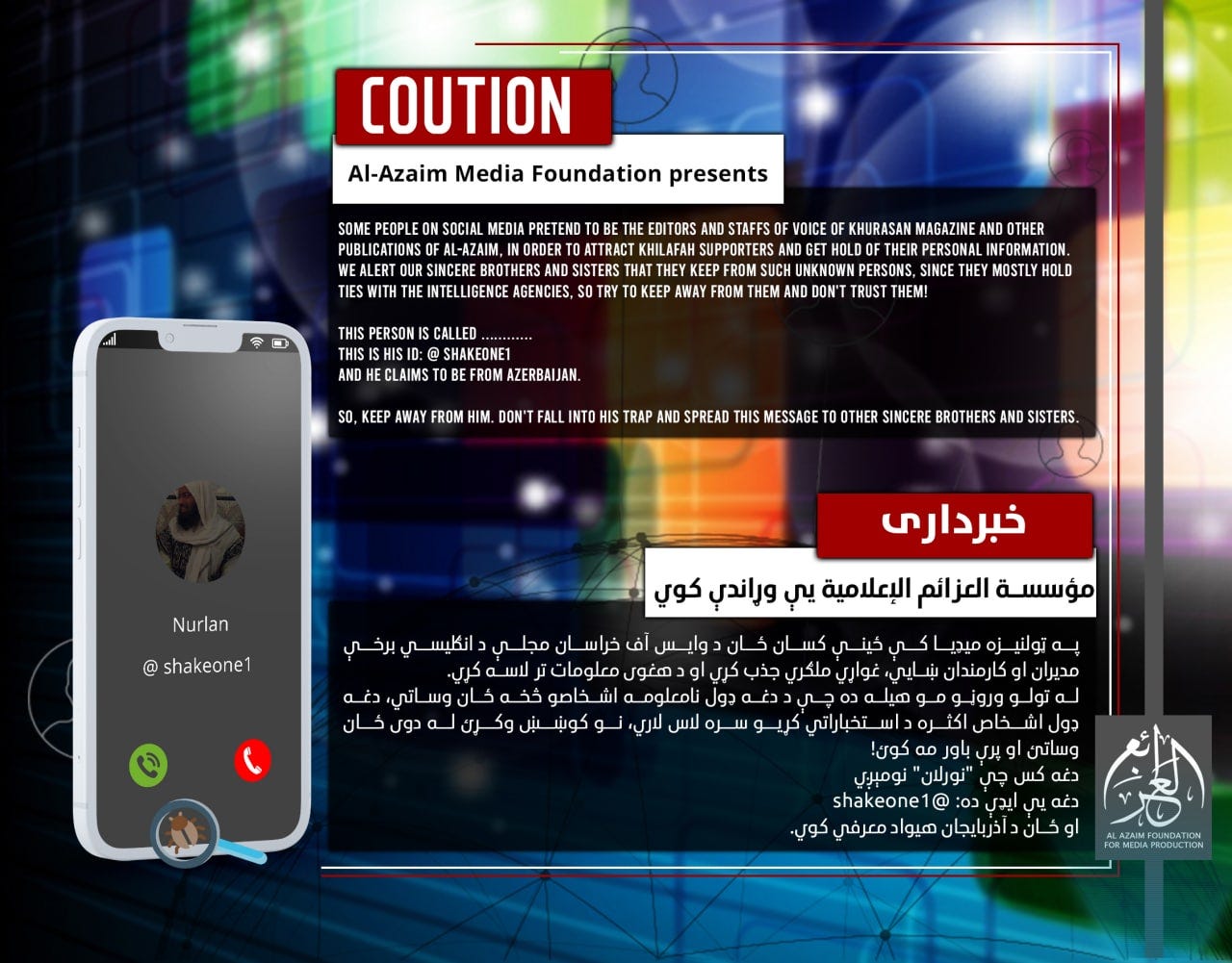
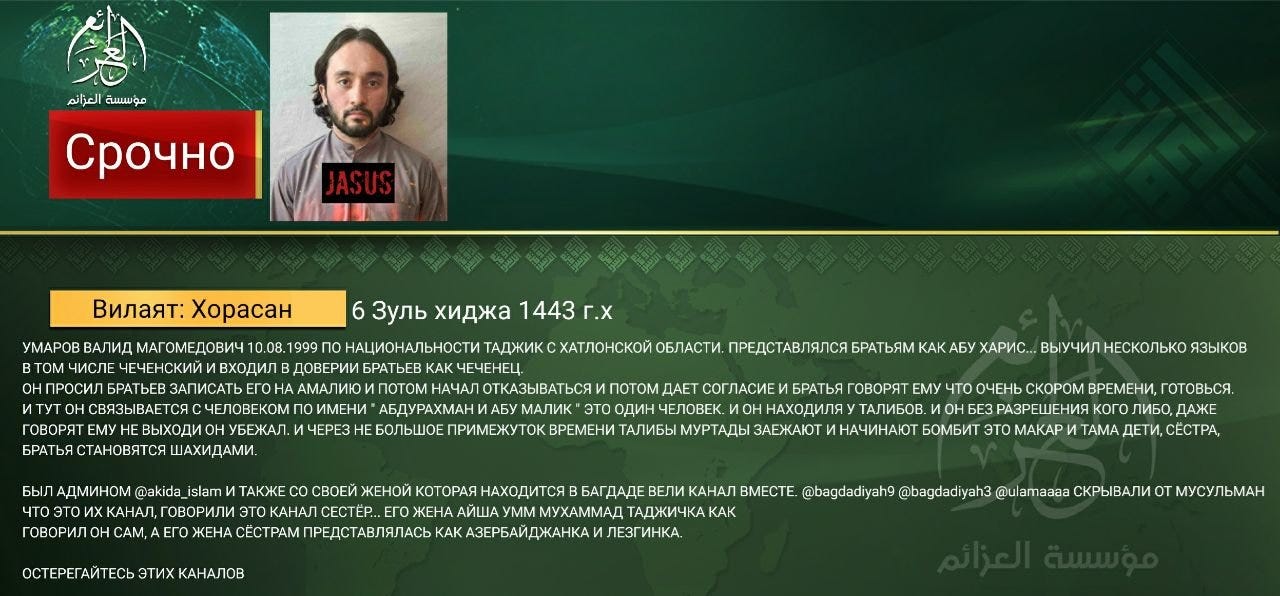

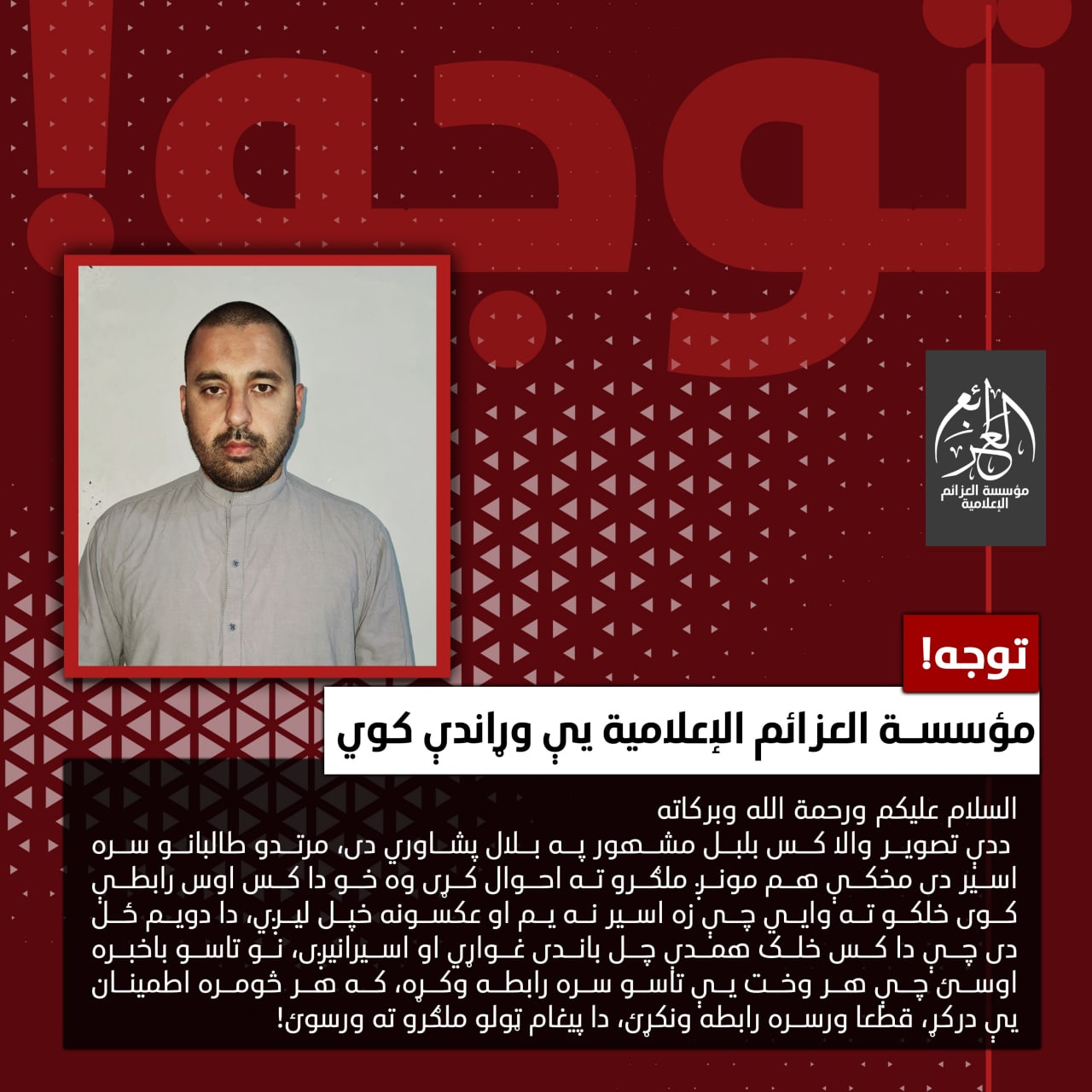
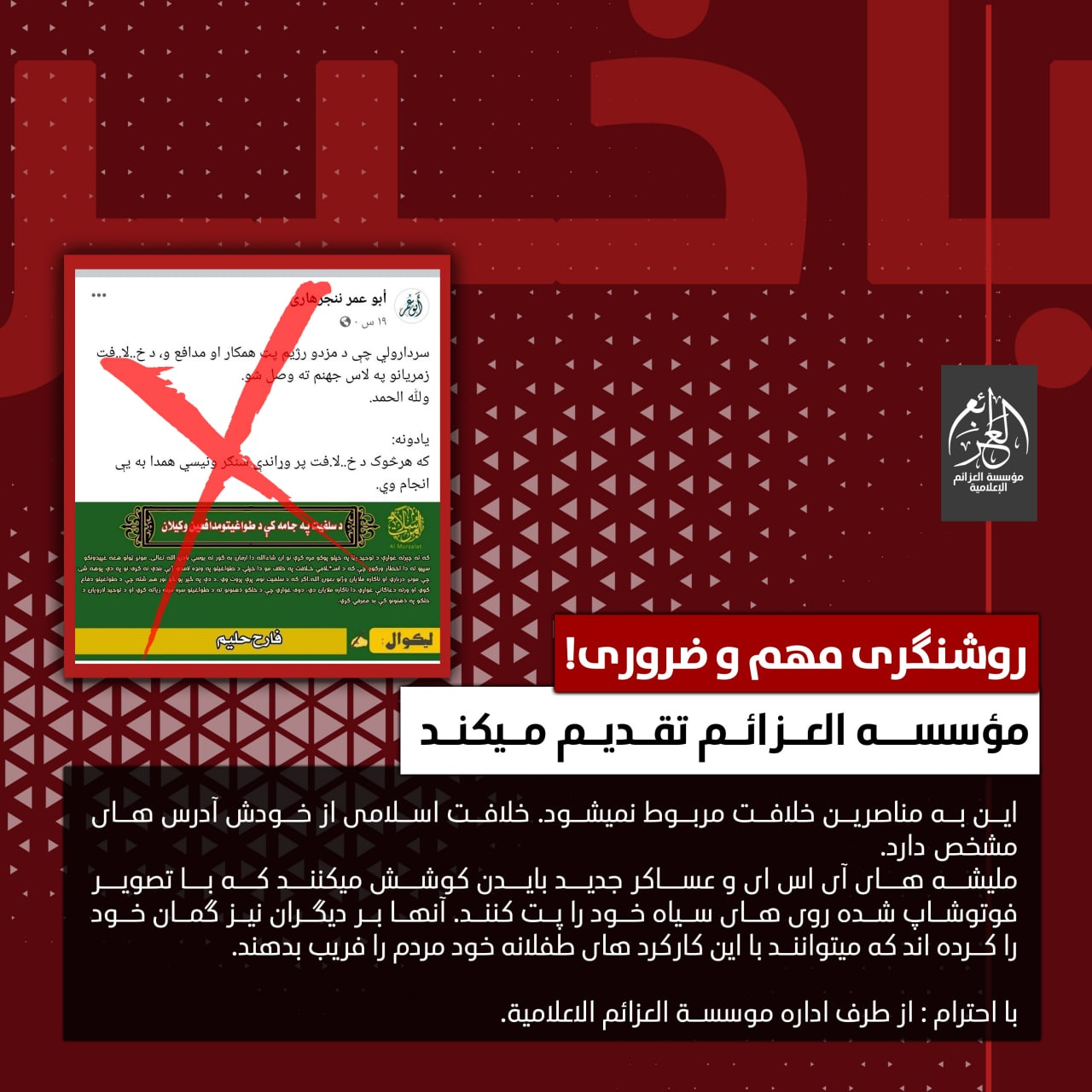

Attacking Shias goes back to an historic phenomena of over 1000 years ago, where Shias assassinated high ranking Sunni Saljuki and Abasi leaders in Iran, since then killing Shias for IS is a pride.
How wonderful to attack Shias in Kabul